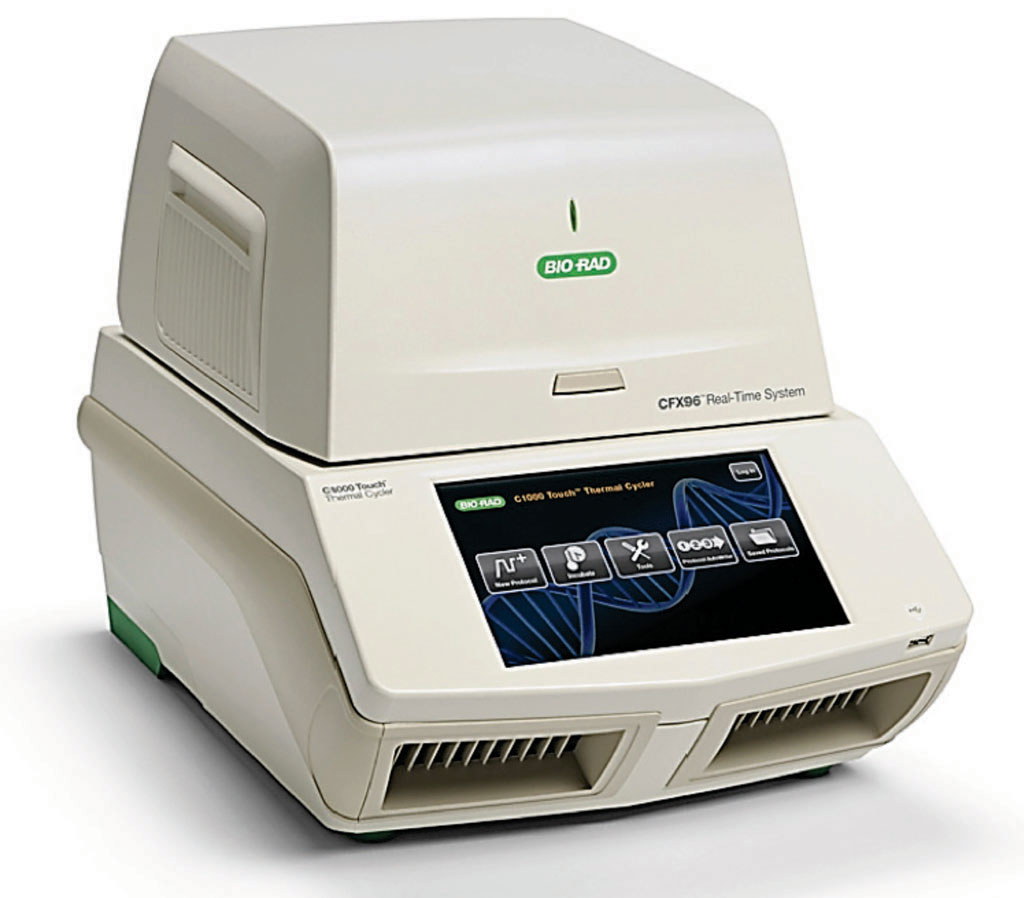Circulating Cell-Free DNA Predicts Gastric Cancer Patients Prognosis
By LabMedica International staff writers
Posted on 21 Dec 2016
Gastric cancer is the second most common cancer and the fourth leading cause of cancer death and the most significant prognostic indicator is TNM Classification of Malignant Tumors (TNM) staging.Posted on 21 Dec 2016
However, there is no clinically established blood test, which has the predictive ability to determine gastric cancer for their clinical stages and therefore, the development of a preoperative blood test for assessment of clinical stage of gastric cancer is desirable.

Image: The CFX96 real-time PCR detection system (Photo courtesy of Bio-Rad).
Scientists at the Soochow University (Suzhou, China) respectively assessed plasma samples from 40 healthy controls and 73 patients with gastric cancers: two stage 0, 17 stage I, 11 stage II, 33 stage III, and 10 stage IV. Blood samples were draw before antitumor therapy, within one to three weeks after surgery, and during the follow-up period. DNA was purified from 2 mL of plasma using QIAamp circulating nucleic acid kit (Qiagen, Hilden, Germany).
Quantitative polymerase chain reaction (qPCR) targeting the Alu repeats was performed using two different sets of primers amplifying the long and short segments. DNA integrity was calculated as a ratio of the long to the short fragments of Alu repeats. Real-time PCR amplification was performed using a using a Bio-Rad CFX96 Real-Time PCR Detection System (Bio-Rad, Hercules, CA, USA).
Circulating cell-free DNA (ccf-DNA) in plasma may contain both specific and non-specific of tumor markers. The concentration and integrity of ccf-DNA may be clinical useful for detecting and predicting cancer progression. The team found that plasma DNA concentration was significantly higher in patients with stage III and IV gastric cancers than in healthy controls. Plasma DNA concentration was independent of age. In 73 patients with gastric cancer, median plasma DNA concentration was not correlated with depth of tumor invasion, lymphovascular invasion, and lymph node metastasis.
The authors concluded that that ccf-DNA was higher in plasma from patients with advanced gastric cancer than those from healthy controls. Ccf-DNA levels dropped after operation and elevated again at tumor progression. Ccf-DNA may be valuable in monitoring progression and prognosis of gastric cancer. In addition, they also tested a new pair of Alu219 primers that have high efficiency and may be applicable for measurement of DNA integrity. The study was published on December 9, 2016, in the journal BMC Cancer.
Related Links:
Soochow University
Qiagen
Bio-Rad














